Artificial Intelligence (AI) could replace the equivalent of 300 million full-time jobs, a report by investment bank Goldman Sachs says.
With the rise of platforms like ChatGPt, Google’s Bard, and others that can automate daily workflow, indeed many jobs around the world could be at risk of becoming automated.
In fact, the conversation on whether AI will automate jobs is nothing new, a 2013 University of Oxford study found that 47% of US jobs could be eliminated by AI over the next 20 years.
Also, it is an inevitable foregone conclusion that AI will only get cheaper and become more advanced in the future, which could potentially disrupt white-collar work as we know it.
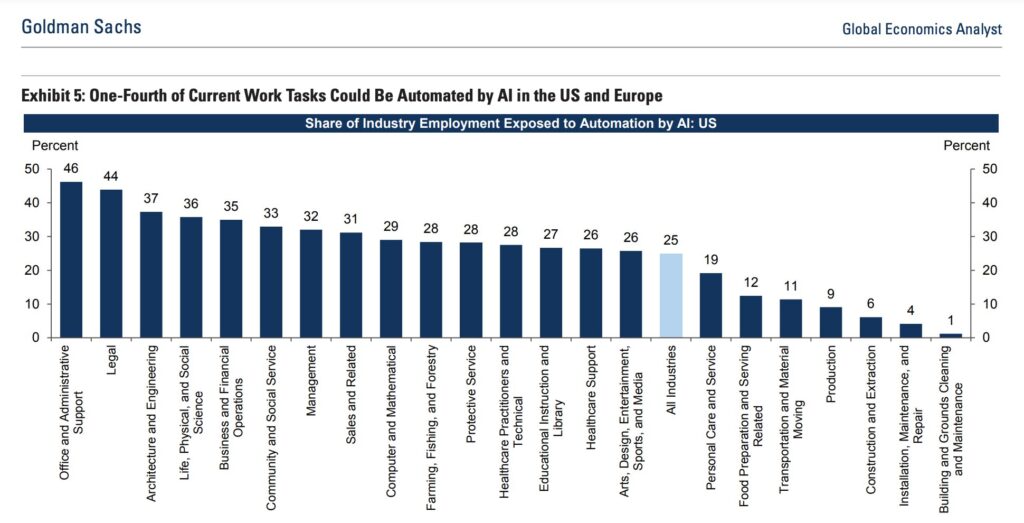
Is My Job Safe?
Well, this question has inspired Mark to develop a website named “Will Robots Take My Job?” The name of the website says it all – you can simply search for a job title and find out the probability of it being replaced by AI. (Caution: Searching for your job title on this website may result in existential crises, fear of automation, and a sudden urge to learn how to code. Proceed at your own risk!)
In this article, I have recognized 10 jobs that will be automated within the next decade.
The predictions are based on the study that analyses the likely probability that a job will be replaced by automation primarily on the level of routine and the specialized training along with social intelligence required to complete it.
- Coders
OpenAI’s latest hiring spree suggests that the company is doubling down on its efforts to push the boundaries of natural language processing and create a technology that could one day replace human coders. With products like Codex already demonstrating the ability to convert natural language into working code, the future of coding could be closer than we think.
Sam Altman, OpenAI’s CEO, recently put the company’s headcount at 375 people, a tiny number compared to the thousands of staff at tech giants like Google and Facebook working on artificial intelligence. “I know I’m not supposed to brag about OpenAI,” he tweeted, touting the company’s “talent density.”
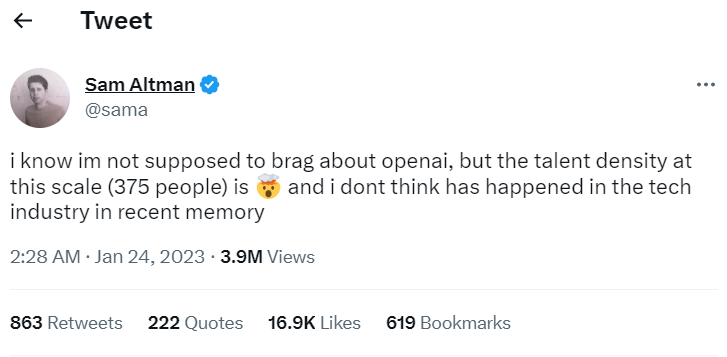
- Software Quality Tester
Get ready to say goodbye to traditional software testing!
As AI and ML technologies continue to advance, they’re poised to take over the entire quality testing process within the next four to five years. The driving force behind this shift?- The ever-evolving digital strategies of companies and the need to deliver high-quality software faster than ever before. It’s time to buckle up and embrace the future of software testing – with AI at the helm.
- Factory Worker
As AI, machine learning, and the Internet of Things continue to revolutionize the manufacturing industry, we are seeing major improvements in the efficiency and resilience of manufacturing execution systems.
With advanced algorithms and real-time data analysis, machines are becoming increasingly capable of self-correction and optimization, leading to higher productivity and fewer errors on the production line.
Many plants will soon be able to operate autonomously, with the ability to start and stop production based on ML-triggered events and order supplies and replacement machines systematically.
Be prepared for a new era of manufacturing – one where technology takes the driver’s seat and plants can run like clockwork.
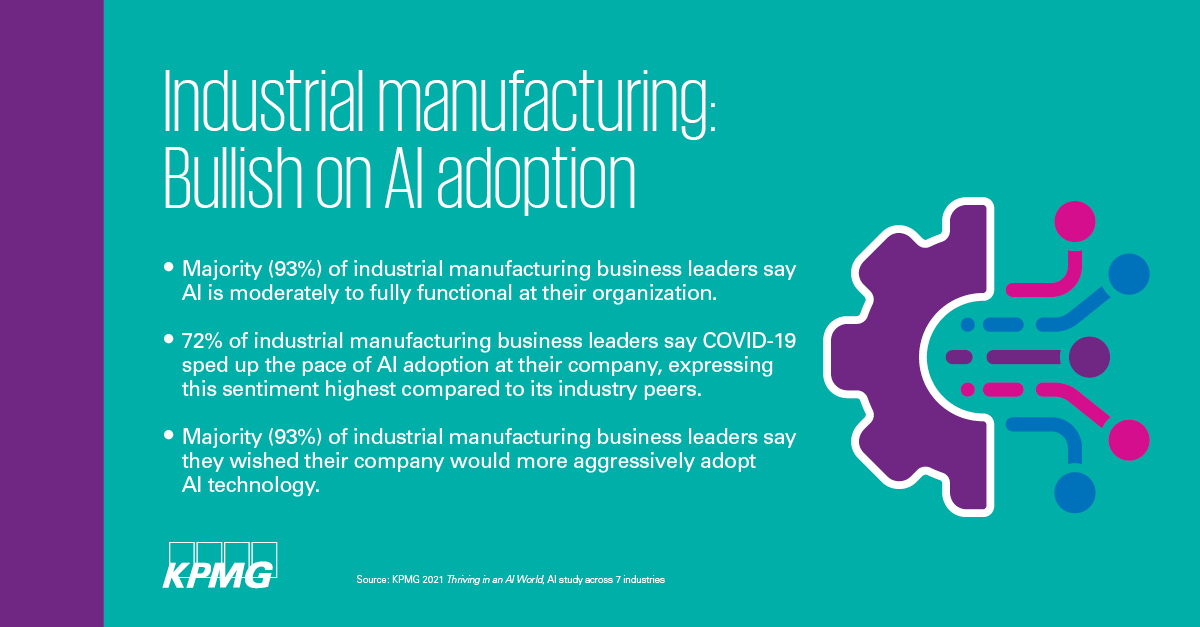
- Customer Service Executive
Robotic process automation tools are the future of customer service – and a smart investment for anyone looking to stay ahead of the curve. With algorithms that can handle even the most common questions, these tools are capable of managing customers around the clock, without ever needing a break. They can work 24/7 without ever getting tired or needing a break.
“Servion Global Solutions predicts AI will power 95% of all customer interactions by 2025, including live telephone and online conversations”.
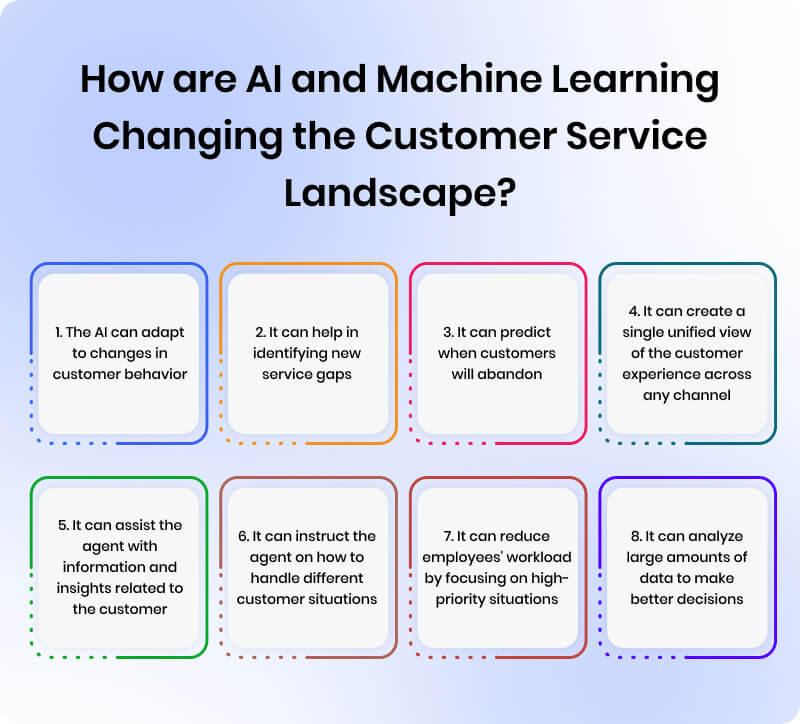
While some older generations may still prefer the personal touch of a live representative, younger generations are more than comfortable chatting with their robotic assistants. So embrace the future of customer service – where man and machine work together to deliver the best possible experience.
- Data Entry & Processing
As AI and automation technologies continue to evolve, tasks that once required human intervention are becoming increasingly automated, allowing for greater efficiency and accuracy in these processes. From technical operations and incident response management to provisioning developer resources, recruiting and onboarding, marketing lead flow, and sales process management, these formerly human-driven tasks are being automated at a breakneck pace.
However, human judgment still has a place in the world of automation. With human-in-the-loop automation, processes that require a human touch can be made much more efficient, helping to strike the perfect balance between technology and humanity.
- Recruiter
As someone deeply involved in the world of hiring and recruiting, I can say without a doubt that we’re on the cusp of a major revolution in this field. Thanks to the power of machine learning and AI, we’re about to see some major changes in areas like talent sourcing, candidate engagement, and prospective employee assessment.
A PwC survey conducted last year found 35% of companies plan to use AI to hire and train employees this year. So, get ready for a brave new world of hiring and recruiting – where the sky’s the limit, and anything is possible.
Meanwhile – AI recruiters may be able to find candidates with the right skills, but can they screen for cultural fit? I think we’re safe for now.

- Executive Assistance
Executive assistants will be a thing of the past. AI can manage scheduling meetings, taking notes, maintaining inventory, parsing through emails, booking travel, vendor invoicing, generating reports, and much more.
In the future, everyone will have their own AI assistant that can seamlessly talk to one another and get a lot of work done automatically, without any human involvement required.
- Paralegals & Legal Assistants
Jobs in the legal industry such as paralegals and legal assistants are responsible for consuming large amounts of information, synthesizing what they learned, and then making it digestible through a legal brief or opinion.
AI may be able to analyse legal documents and identify relevant legal concepts. Some courts are even considering using AI to determine eligibility for bail by detecting behavioral patterns indicating flight risk — a decision flesh-and-blood judges traditionally made in the past.
- Market Research Analysts
With its powerful ability to analyse data and predict outcomes, it’s no surprise that this field is poised for major AI-driven change. After all, market research analysts are responsible for collecting data, identifying trends, and using that information to craft effective marketing campaigns and advertising strategies.
AI tools offer many possibilities to accelerate and transform traditional market research processes, particularly survey methodology. With AI-powered conversational surveys, we’ll be able to ask follow-up and probing questions in real-time, getting to the heart of what people really think and feel. This means shorter surveys, more engaging questions, and more accurate data than ever before.
And the best part?- With conversational surveys, we can get feedback from anyone, anywhere, at any time – making it easier than ever to stay connected to our customers and improve our products and services. So get ready for the conversational revolution – it’s going to change the way we think about surveys and data collection forever.
- Urban Designers
With the help of AI-enabled robots, city planners can streamline everything from traffic management to public services, freeing up more time and resources to focus on the big-picture issues that really matter – like population control and transportation planning. And that’s just the beginning – with faster, more efficient, and less expensive production processes, the possibilities for urban design are endless.
Many cities are already using AI-enabled robots to improve operations and reduce costs in traffic management and public services.
Room for Disagreement
Despite the promising early results, there’s still a high likelihood that all these jobs will be fully automated considering various roadblocks, as tends to happen in AI development. Self-driving cars appeared imminent in 2013, for instance. Today, they seem like a distant possibility
Enthralling
Meanwhile, since ‘Will Robots Take My Job’ caught my fancy, I tried searching for the nearest job title available related to recruitment i.e Talent Directors, and this is what it predicts -> Automation Risk of 35% with advice to ‘Start Worrying’. Though I am still wondering why there aren’t enough votes for this profile.
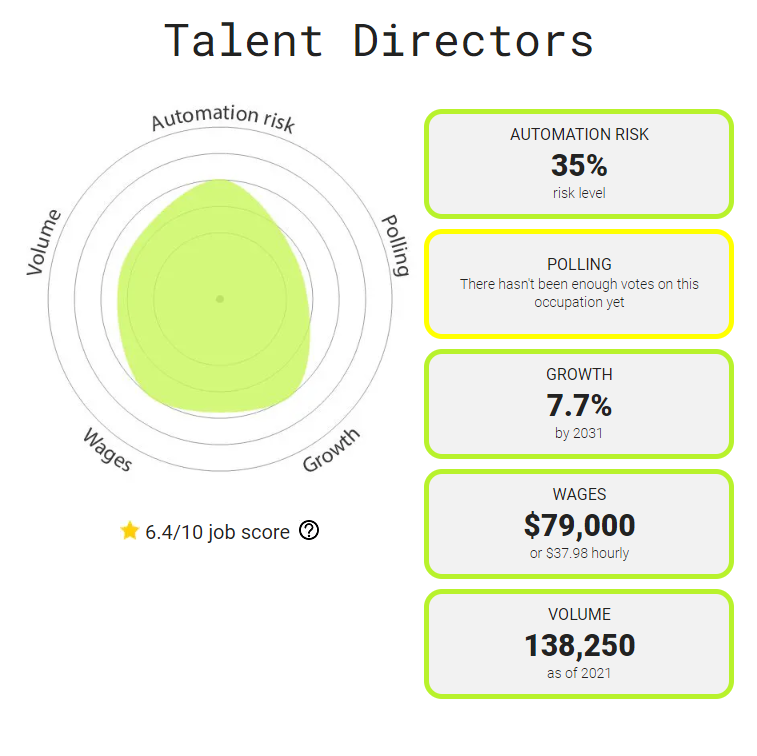
The Bad Hire
I’m not worried about AI replacing Recruiters. After all, who will they blame for a bad hire then?
AUTHOR:

Yashi Saksena,
Chief of Staff & Lead, DI-HiRE
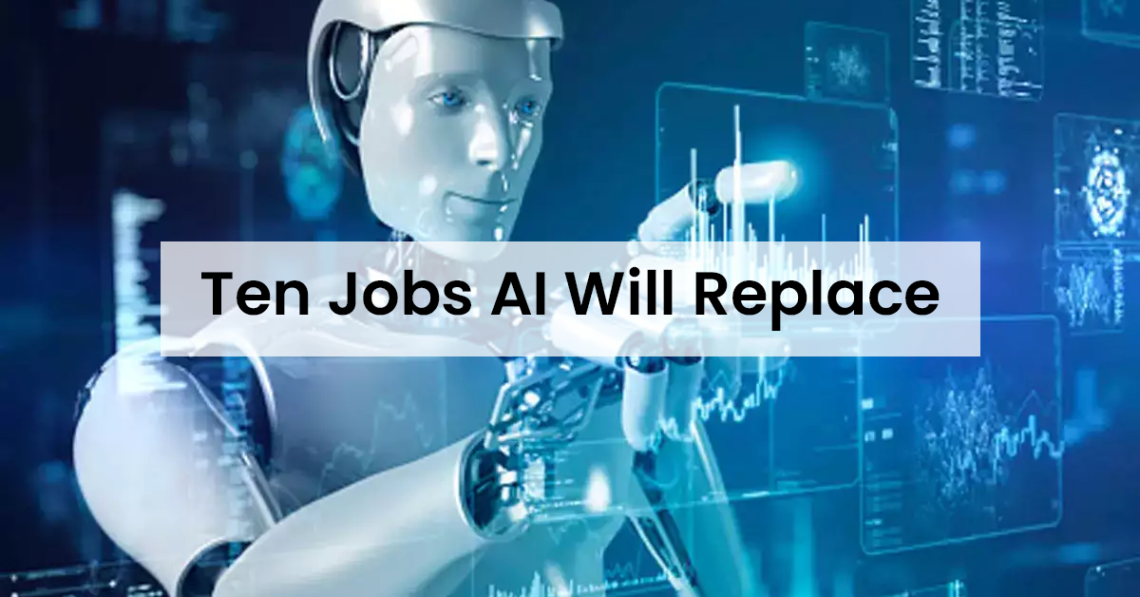



Leave a Reply